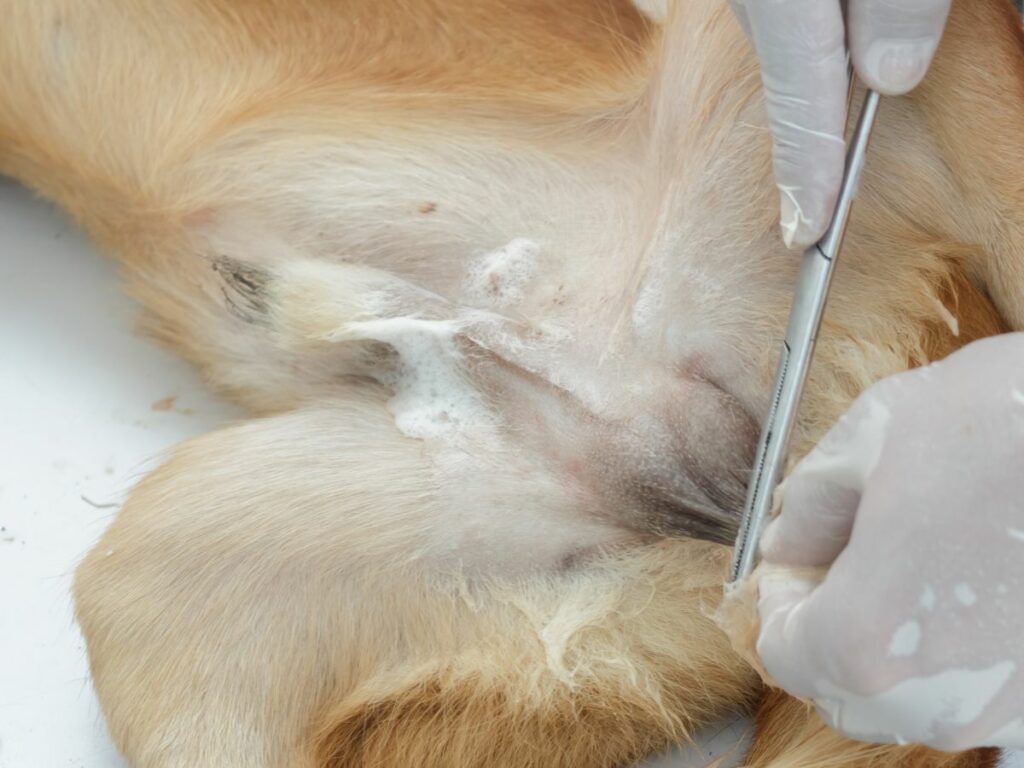Neutering is a topic that raises many questions among pet owners, especially when it comes to puppies.
In this article, we aim to provide answers to the most commonly asked questions about puppy neutering. Whether you’re considering neutering your puppy or simply curious about the process, read on to find valuable information and insights.
What Is Neutering?
Neutering refers to the surgical or non-surgical procedure performed to remove the reproductive organs of a male or female dog. The surgical method, known as spaying for females and castration for males, is the most common approach. It involves the removal of the ovaries and uterus in females and the testicles in males.
Differentiating between surgical and non-surgical methods, it’s important to note that surgical neutering offers several benefits. It helps prevent unwanted pregnancies, eliminates the risk of certain reproductive diseases, and can reduce behavioral issues related to sexual maturity.

When Should I Neuter My Puppy?
Determining the appropriate age for neutering your puppy can vary depending on several factors. While some veterinarians recommend neutering as early as 8 weeks old, others suggest waiting until the puppy reaches 6 months of age.
The decision should be based on your puppy’s breed, size, health condition, and the advice of your veterinarian.
It’s important to note that there are differing opinions among experts regarding the optimal age for neutering. Early-age neutering has its advantages, such as reducing the risk of certain diseases and behaviors associated with intact animals.
However, waiting until the puppy is older allows for proper growth and development.
Advantages Of Neutering My Puppy
Neutering your puppy offers numerous benefits, both for the puppy and the owner. Firstly, it helps control the pet population by preventing unwanted litters. This contributes to reducing the number of stray animals and overcrowded shelters.
Additionally, neutering can eliminate or reduce the risk of certain health issues, such as uterine infections and testicular cancer.
Addressing common misconceptions and myths surrounding neutering is crucial. Contrary to popular belief, neutering does not lead to obesity or laziness in dogs. Proper diet and exercise are essential for maintaining a healthy weight and overall well-being.
Disadvantages Of Neutering My Puppy
While there are many advantages to neutering, it’s important to consider potential drawbacks or risks associated with the procedure. Like any surgery, there is a small risk of complications such as infection or adverse reactions to anesthesia.
However, these risks can be minimized by choosing a reputable veterinarian and following post-surgery care instructions diligently.
It’s important to provide balanced information to help readers make an informed decision. Understanding both the benefits and potential risks allows pet owners to weigh their options and make the best choice for their puppies.
How Do I Get My Puppy Neutered?
Finding a reputable veterinarian is essential when it comes to getting your puppy neutered. Seek recommendations from other pet owners or consult your local animal welfare organizations. A reputable vet will provide a safe and comfortable environment for your puppy during the procedure.
Before the surgery, certain preparations are necessary to ensure a successful procedure. These may include fasting your puppy before surgery, ensuring they are up-to-date on vaccinations, and discussing any specific requirements with your vet.

Post-Surgery Care For Your Neutered Puppy
After the surgery, your neutered puppy will require proper care and monitoring. This includes managing pain, monitoring incision healing, and preventing complications. Your veterinarian will provide detailed instructions on how to care for your puppy during the recovery period.
It’s essential to keep your puppy calm and restrict their activity levels during the healing process. Preventing them from licking or biting the incision site is also crucial. Regular check-ups with your veterinarian will ensure that the recovery is progressing as expected.
Recovery Tips After Neutering
Helping your puppy recover comfortably at home involves providing a safe and quiet space for rest. It’s common for puppies to experience reduced appetite and energy levels after surgery. Ensure they have access to fresh water and offer small, easily digestible meals.
Addressing common concerns such as appetite changes, activity restrictions, and behavior modifications is vital during the recovery period. Patience and understanding are key as your puppy adjusts to the changes in their body.
What Changes Can I Expect After Neutering?
Neutering can result in certain behavioral and physical changes in puppies. Male puppies may exhibit reduced aggression, marking behaviors, or roaming tendencies. Female puppies will no longer experience heat cycles or attract unwanted attention from intact males.
It’s important to continue providing routine care and monitoring your puppy’s health even after neutering. Regular exercise, a balanced diet, and mental stimulation are essential for their overall well-being.
Conclusion
In conclusion, puppy neutering is a decision that should be carefully considered by responsible pet owners. We have discussed the definition of neutering, the appropriate age for the procedure, its advantages, potential disadvantages, post-surgery care, recovery tips, and what changes to expect.
By understanding the benefits and risks associated with neutering, pet owners can make informed decisions that contribute to their puppy’s long-term health and well-being.
Remember that consulting with a trusted veterinarian is crucial in determining the best course of action for your furry friend.
Encouragement is given to responsible pet owners to seriously consider neutering their puppies. Through this responsible action, we can contribute to controlling pet overpopulation and ensuring a healthier future for our beloved pets.





